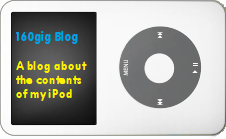One of the plus points of the terrible toll taken on the music industry by Covid has been that by taking to Social Media you can find artists who you would never have heard, simply because they are physically so far away. It means you get the chance to sample, often for free, or for very little cost some brilliant music.
An artist I don't need to be pushed to take that advice for is Kim Edgar. I've spoken about her before, and her new album 'Held' is up for preorder at her website and on Bandcamp. Judging by the one song available so far this could be her best yet (a high bar) and I'm looking forward to a review of the whole thing when it's released.
Marketing of music at the moment is a tricky business, trust me, I'm on the inside with several acts trying to get them noticed above the general background noise. Rachel Collis, like another band I've been listening to, a Scottish country duo Ashton Lane, has a VIP page where for a monthly subscription you get exclusive songs, cheap deals on their back catalogue and access to the band. I've ended up supporting about a dozen of these pages over lockdown but sadly with work at a premium have had to back away from most of them, even at $5 per month it all adds up.One of the problems with this is that lack of experience with marketing is that you can end up, as a couple of the people I've been supporting have, with some scary expensive tools, CRM (Customer relationship managers), email marketing portals and the like. That's where my new venture Marketing4Music comes in. I'm hoping to bring the marketing tools and expertise used in other industries to music, so that rather than Infusionsoft at $75 or more per month, meaning that 15 of your subscribers are paying just for that you can use much cheaper or free alternatives. Rachel Collis is using the very reasonably priced Aweber email tool so hopefully she is making some money on it...
Get in touch if I can help you market your music, and please support independent music.







